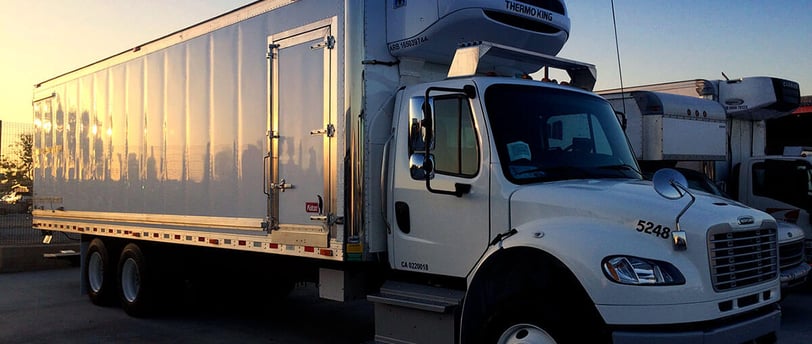REEFER
How does a REEFER truck works?
12/18/20242 min read


How does a REEFER truck works?
A reefer truck, or refrigerated truck, is designed to transport goods that require temperature control during transit. It is commonly used for perishable items like food, pharmaceuticals, and chemicals that must be kept within specific temperature ranges to prevent spoilage or degradation.
Temperature Control
The key feature of a reefer truck is its built-in refrigeration unit, which is powered either by the truck’s engine or by a separate fuel source. This unit maintains a consistent temperature inside the cargo area, which can be adjusted depending on the nature of the goods being transported. For example, it can be set to keep items frozen, chilled, or at room temperature, based on the requirements.
Loading and Unloading
Like other types of trailers, reefer trucks can be loaded and unloaded at docks or warehouses using forklifts or pallet jacks. The cargo area is typically equipped with insulation to help maintain the temperature, and the goods are secured with straps or pallets to prevent movement during transit. The refrigeration unit continues to work while the truck is on the road to keep the temperature stable.
Types of Goods Transported
Reefer trucks are essential for transporting goods that are sensitive to temperature fluctuations, such as fresh produce, dairy products, meat, seafood, pharmaceuticals, and certain chemicals. These goods need to be kept at specific temperature ranges to preserve their quality, safety, and compliance with regulations.
Operation During Transit
While on the road, the refrigeration unit runs continuously to maintain the desired temperature. Some reefer trucks have multi-temperature zones, allowing different products requiring different temperatures to be transported in the same truck. For example, frozen foods might be stored in one section, while chilled goods are stored in another.
Temperature Monitoring and Safety
Reefer trucks are often equipped with temperature monitoring systems that track and log the internal temperature throughout the journey. This data can be crucial for ensuring compliance with health and safety regulations and for providing proof that the goods were kept at the proper temperature during transit.
Benefits and Use
The ability to maintain precise temperature control makes reefer trucks vital for industries that rely on the safe and efficient transportation of perishable goods. They play a crucial role in supply chains, especially in food distribution, pharmaceuticals, and other temperature-sensitive sectors.
